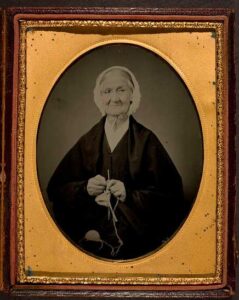 A Ticor Title Company escrow officer in Portland, OR opened a $305,000 sale of a residential property and placed a title order for a preliminary report/commitment. The order was assigned to Kathie H., one of the Company’s best and brightest examiners. During her examination of the chain of title documents for the subject property, she discovered a deed with many red flag warnings:
A Ticor Title Company escrow officer in Portland, OR opened a $305,000 sale of a residential property and placed a title order for a preliminary report/commitment. The order was assigned to Kathie H., one of the Company’s best and brightest examiners. During her examination of the chain of title documents for the subject property, she discovered a deed with many red flag warnings:
- Deed was uninsured – not recorded by a title company
- DIY – “Do It Yourself” deed from a stationery store
- Handwritten (not legible)
- Notarized in Umatilla County, where there was no evidence the Grantor ever resided
- Deed reflected consideration of $1
- Grantor is a widow – husband died in 2011
- Grantor is likely elderly – owned the property since 1985
- Property is unencumbered
Uninsured Deed Affifavit Requested
After discussing these matters with her chief title officer, Kathie created an exception for the deed on her title report and called for an uninsured deed affidavit signed by the grantor, that it was her voluntary intent to convey all of her interest to the grantee.
The report was sent out to the parties to the transaction and arrangements were made for the widow, former property owner, to appear in one of Ticor’s offices to sign the affidavit which read in part:
“On or about July 7, 2013, I executed a deed wherein I conveyed the above described property to my daughter–in–law. The deed recited the consideration as $1. The deed recorded on August 1, 2013 in the Multnomah County Recorder’s Office.
The true and actual consideration was the promise by my daughter–in–law and my son to take care of me in their home for the remainder of my life in exchange for me conveying my property to them.”
Questions of Elder Abuse
Related Articles
Next, the escrow officer received a call from the Multnomah County aging services about possible elder abuse. The escrow officer notified Kathie, and she investigated public records which showed the daughter–in–law had divorced the son in 2012. He was not even named on the deed from his own mother. Then, the daughter–in–law filed bankruptcy and was now running a massage parlor at the property address.
The escrow officer thought the deal was going to cancel. Luckily, bringing the Mom down to Ticor’s office to sign the affidavit raised some questions with the four children and resulted in the appointment of a conservatorship for the property owner, which means she is now a legally protected person.
The buyer – a religious institution – was willing to wait until the conservatorship was finalized as they really wanted to purchase this property. Once the conservatorship was appointed, all proceeds from the sale would be held by the conservator and not the daughter–in–law.
Watching for suspicious circumstances; Wondering about the validity of the uninsured deed; and Waving to her chief title officer for assistance were exactly the right steps taken by Kathie. Her knowledge and experience prevented a potential claim. For her efforts she has been rewarded and received a letter of recognition from the Company.
MORAL OF THE STORY
Calling for the uninsured deed affidavit created enough attention for the children to start asking questions. If the transaction closed without the affidavit and the ultimate appointment of the conservator, it is likely the children would have contested the validity of the deed to the final buyer – the religious institution. The Company would have had to defend the buyer’s ownership interest under the terms of the owner’s policy that it purchased at closing.